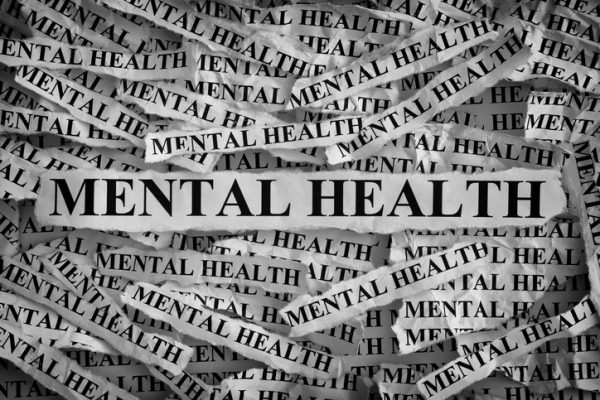
The United States is suffering from a mental health crisis. Millions of Americans have disorders such as depression, anxiety, and trauma, yet timely and affordable treatment continues to be frustratingly out of reach. Long wait times, high costs, and a faulty system are creating a dangerous reality in which individuals who need assistance most urgently can’t get it when they need it.
I learned this first-hand while working on my medical residency in an emergency room. That is where I encountered Lauren, a college student who was dealing with unimaginable tragedy. She had lost her mother and younger sister to an overdose within weeks of each other, and her mental state was careening out of control. But because she didn’t meet the hospitalization criteria, she was sent home with instructions to wait weeks for a psychiatric visit. That visit never occurred. Lauren took her own life before she could obtain the treatment that so desperately was needed.
It was a turning point in my life. It became clear that our mental health system is not designed to treat people in crisis. Instead of being administered right away and effectively, it shoves them through a maze of barriers. It is unacceptable. If we are serious about saving lives, then we must reconsider how mental health care is administered.

Solving Healthcare’s Provider Data Problem Starts with Interoperability
Break down the silos. Take control of your provider data.
The unacceptable gaps in mental health care
Despite growing awareness of mental illness, treatment remains a problem. More than a third of adults with mental illness receive no care at all, and for those who do, the waits are frequently life-threatening. Weeks’ wait for psychiatric visits are the standard, and those in crisis have no other viable options.
Emergency rooms are the last resort for individuals in crisis, but they are not equipped to provide specialized mental health care. Many patients, like Lauren, are sent home because they do not meet the strict guidelines for inpatient admission, but are far from being safe. They are left in a dangerous limbo, unable to receive the treatment they so desperately need.
A new model: Immediate and affordable psychiatric care
Mental illness treatment must not be an afterthought. We need to have a system that prioritizes speed of intervention, a system that is based on the severity of treatment provided in cases of bodily emergencies. Like the person having a heart attack does not wait for weeks to see a cardiologist, the person suffering mentally should not wait months and months before any therapy is administered.
Maybe the most effective answer to this crisis is emergency psychiatry: same-day access to therapy and psychiatric care. By cutting out wasteful waiting time, it gets them in as fast as possible, which reduces the likelihood that crises will have such disastrous outcomes.
Technology can also play a critical part in expanding access. Telehealth has already proven its potential to bridge gaps in mental health care, particularly for people in underserved populations. But online care alone will not do. A hybrid model, blending face-to-face psychiatric evaluations with digital tools, ensures that people are receiving comprehensive, flexible, and effective care.
The financial barrier: Why cost shouldn’t decide who receives help
Even if mental health care is available, cost is the impediment. Counseling and psychiatric treatment can be prohibitive, and insurance may be inadequate. This forces many to delay or abandon care, which exacerbates their conditions and leads to higher rates of hospitalization, self-mutilation, and suicide.
If we truly care to end the mental health emergency, we must ensure that cost cannot be a determining factor for treatment. That means expanding insurance, expanding provider networks, and revolutionizing payment structures to provide psychiatric treatment at an affordable cost to all. Mental health shouldn’t be a luxury. It needs to be fundamental.
A call to action: the time for change is now
Every day, someone like Lauren slips through the cracks in our broken system. They wait, they suffer, and they struggle, too often with long-term harm. This is a matter of values, not policy.
Mental health care should be timely, convenient, and affordable. The system currently is failing too many people, but we can change it. By embracing prompt psychiatric care, expanding access through technology, and making it economically sound for all, we can create a future where no one is forced to suffer in silence.
The argument is no longer if we should change, but whether or not we have the will to make it happen. It is time for action.
Dr. Tamir Aldad is a fellowship trained addiction psychiatrist and the founder and CEO of Mindful Care - the award winning first-ever psychiatric urgent care chain in the United States. Dr. Aldad graduated with an MBA from University of Chicago Booth School of Business, and completed residency and fellowship training at Northwell Health, after graduating medical school. He also conducted several years of behavioral health research as a physician scientist at Yale School of Medicine. He is passionate about acute mental health issues, public mental health, and improving access to affordable care.
This post appears through the MedCity Influencers program. Anyone can publish their perspective on business and innovation in healthcare on MedCity News through MedCity Influencers. Click here to find out how.









